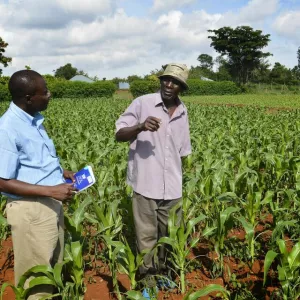Tricot's Role in Sustainable Agriculture and Crop Improvement
As the global population steadily increases – expecting to reach 9.8 billion people by 2050 – and the effects of climate change intensify, sustainable agriculture has become both a necessity and a challenge. The need to develop resilient, high-yield, and environmentally friendly crop varieties is more urgent than ever. Participatory approaches agricultural research have gained traction as an effective means to meet these goals.

Tricot's Role in Sustainable Agriculture and Crop Improvement
As the global population steadily increases – expecting to reach 9.8 billion people by 2050 – and the effects of climate change intensify, sustainable agriculture has become both a necessity and a challenge. The need to develop resilient, high-yield, and environmentally friendly crop varieties is more urgent than ever. Participatory approaches agricultural research have gained traction as an effective means to meet these goals. Among these, the Tricot approach (shortened from the ‘triadic comparisons of technologies’ method) has emerged as a powerful tool to engage farmers in the crop improvement process and enhance the sustainability of agricultural production systems.
This article explores the Tricot approach in depth, discussing its methodology, implementation, and the transformative role it plays in sustainable agriculture and crop improvement, the challenges of implementation and opportunities for overcoming these obstacles. With a focus on inclusivity, scalability, and data-driven decision-making, Tricot is redefining how agricultural research is conducted and applied, offering a promising tool to achieve global goals for more sustainable food systems.

